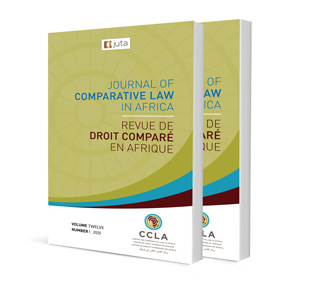
Trade-based illicit financial flows and their impact on fair trade: Will the African Continental Free Trade Area succeed?
Author: Tapiwa Victor Warikandwa
ISSN: 2521-2605
Affiliations: LLB, LLM, LLD (UFH). Adjunct Professor, University of Venda, South Africa. Senior Lecturer, Department of Law, University of Botswana
Source: Journal of Comparative Law in Africa, Volume 12 Special Edition, p. 234–266
https://doi.org/10.47348/JCLA/v12/2025-SEa9
Abstract
The African Continental Free Trade Area Agreement and the adoption of the African Continental Free Trade Area (AfCFTA) have brought significant hope of growing foreign direct investment and intra-African trade on the African continent. The AfCFTA sets the basis for sustained belief in African countries’ ability to grow investments, realise sustainable development and eradicate poverty. However, trade-based illicit financial flows (IFFs) could potentially derail any hopes of realising fair trade, sustainable development and ultimately AfCFTA’s success. Trade practices in African countries are often characterised by corruption, trade-based money laundering, bribery, and a general lack of good governance. The AfCFTA Agreement does not address financial crime risks and/or issues. This article discusses how trade-based IFFs will undermine the potential gains of the AfCFTA. It emphasises that a lack of integrity in trade will frustrate the realisation of the AfCFTA Agreement’s key objectives. The article advocates for harmonised AfCFTA rules to curb IFFs to ensure that the AfCFTA succeeds. Stringent trade rules must be adopted to ensure that trade-based IFFs do not undermine foreign direct investments and intra-African trade. The article relies on the Financial Action Task Force guidelines on how to curb trade-based IFFs.